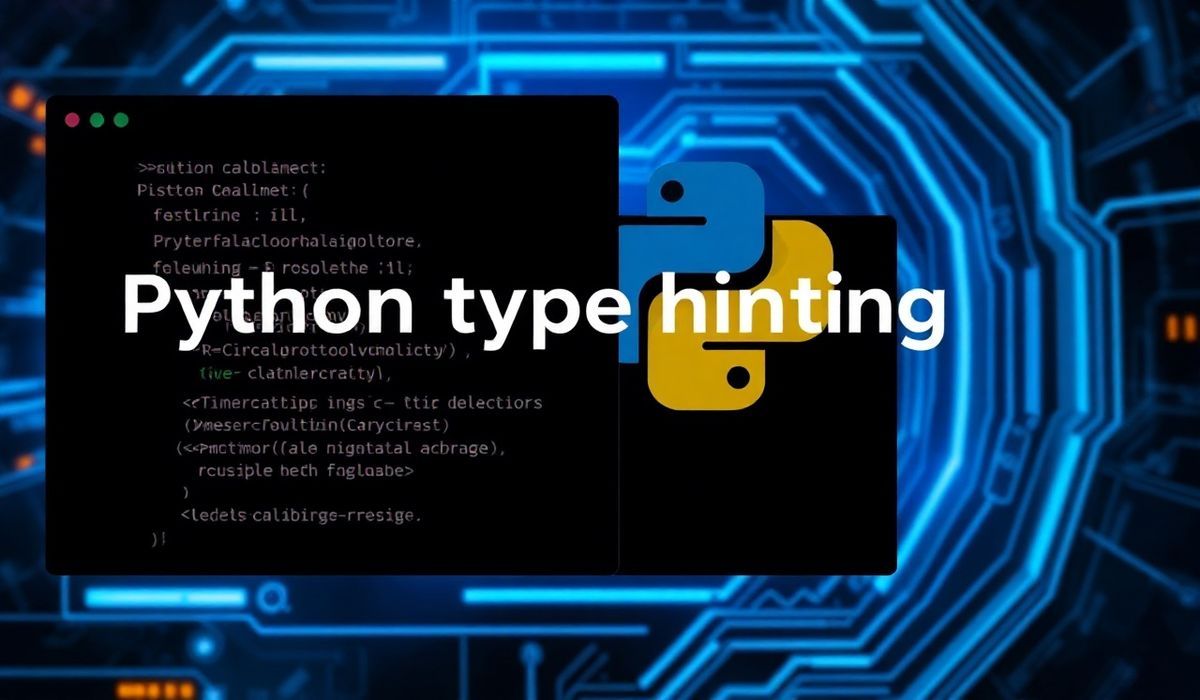Comprehensive Guide to Typing Extensions for Python Developers
The typing-extensions module is a crucial library for Python developers who need to maintain compatibility across different versions of Python while leveraging advanced type-hinting capabilities. It provides backports of new type hinting features introduced in newer versions of Python to older versions.
What is Typing Extensions?
The typing-extensions library extends the standard typing module shipped with Python. By importing from typing-extensions, developers can access typing features that may be unavailable in their current Python version.
APIs in Typing Extensions with Examples
1. TypedDict
TypedDict is used for specifying the type of dictionary objects with fixed keys and specified value types.
from typing_extensions import TypedDict
class Movie(TypedDict):
title: str
year: int
movie: Movie = {"title": "Inception", "year": 2010}
print(movie)
2. Literal
Literal restricts a variable to a specific set of values.
from typing_extensions import Literal
def get_status_code(code: Literal[200, 400, 404]) -> str:
if code == 200:
return "OK"
elif code == 400:
return "Bad Request"
elif code == 404:
return "Not Found"
print(get_status_code(200))
3. Protocol
Protocol is a way to define structural subtyping, allowing objects to be considered as instances of a protocol if they implement specific attributes or methods.
from typing_extensions import Protocol
class Flyer(Protocol):
def fly(self) -> None:
...
class Bird:
def fly(self) -> None:
print("Flying high!")
def check_flyer(entity: Flyer) -> None:
entity.fly()
bird = Bird()
check_flyer(bird)
4. Final
Final is used to indicate that a variable or a method is not to be overridden or reassigned.
from typing_extensions import Final MAX_USERS: Final = 10 print(MAX_USERS)
5. Annotated
Annotated allows adding metadata or constraints to type hints.
from typing import List
from typing_extensions import Annotated
PositiveInt = Annotated[int, "Must be a positive integer"]
def process_numbers(data: List[PositiveInt]) -> None:
for num in data:
if num < 0:
raise ValueError("All numbers must be positive!")
print(data)
process_numbers([1, 2, 3])
6. Self
Self simplifies type hints for methods that return an instance of their class.
from typing_extensions import Self
class Node:
def add_child(self, name: str) -> Self:
self.child = name
return self
root = Node().add_child("child")
Real-World Example
Here, we’ll create a small application to catalog books using several typing-extensions APIs.
from typing_extensions import TypedDict, Final, Literal
class Book(TypedDict):
title: str
author: str
published_year: int
MAX_BOOKS: Final = 5
def add_book(catalog: list[Book], book: Book) -> Literal["Success", "Full"]:
if len(catalog) >= MAX_BOOKS:
return "Full"
catalog.append(book)
return "Success"
catalog = []
new_book = {"title": "1984", "author": "George Orwell", "published_year": 1949}
status = add_book(catalog, new_book)
print(f"Add book status: {status}")
print(catalog)
Conclusion
The typing-extensions library is indispensable for Python developers who work with type hints and want backward compatibility. With features like TypedDict, Literal, Protocol, and more, you can write more robust and maintainable code in Python. Don't hesitate to incorporate these APIs in your next project for cleaner and better code!




